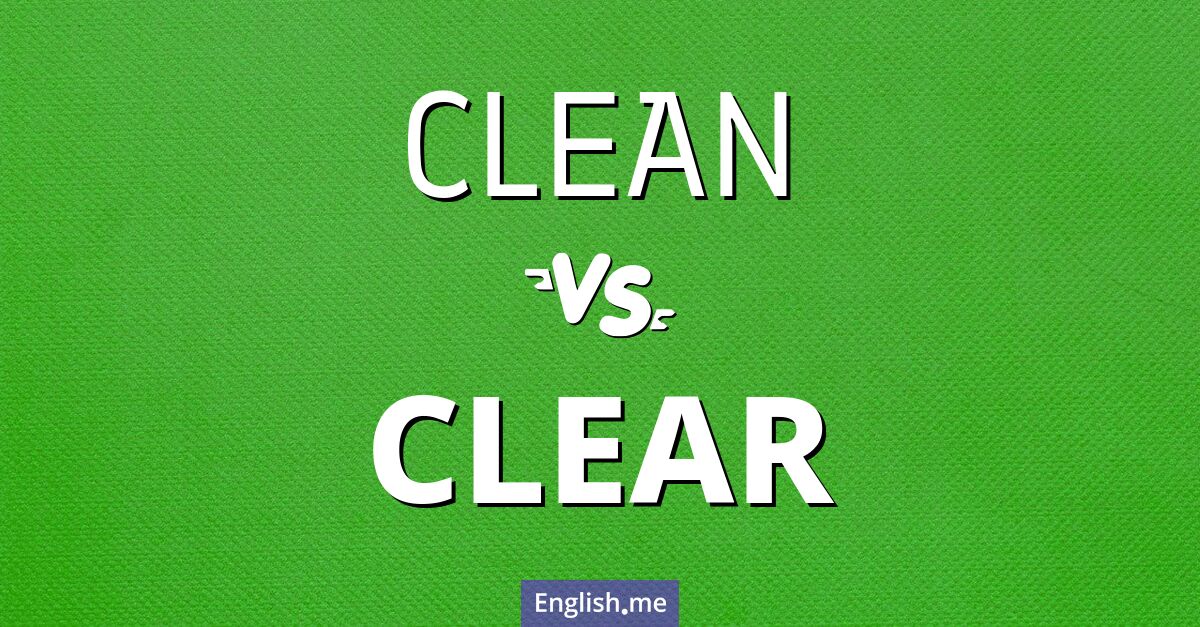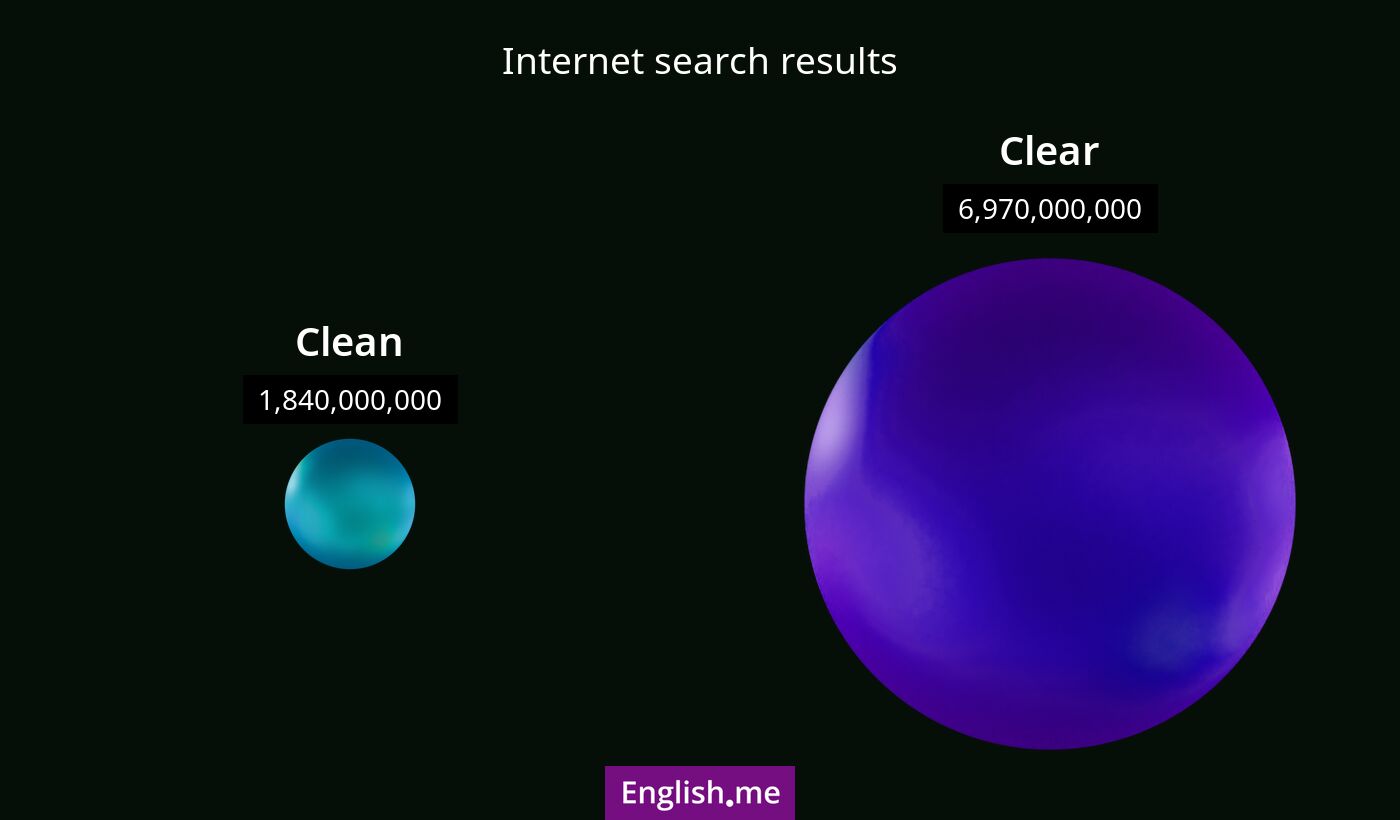Spotless and transparent: exploring "clean" vs. "clear"
Reviewed and edited by  Anwar Kareem 12/11/2024, 06:08
Anwar Kareem 12/11/2024, 06:08
English.me team member

 What is similar?
What is similar?
Both "clean" and "clear" can function as adjectives describing states of being free from unwanted elements. They both imply the removal of obstacles or impurities and can also serve as verbs indicating the action of making something free from such elements.
 What is different?
What is different?
The word "clean" typically refers to the removal of dirt or impurities and is often associated with hygiene or appearance. "Clear," on the other hand, usually relates to the removal of obstructions to visibility or understanding and often refers to transparency or freedom from confusion.
 Which one is more common?
Which one is more common?

 Examples of usage
Examples of usage
Clean- Please clean the kitchen before dinner.
- Her room was exceptionally clean after the renovation.
- He made sure to clean his hands before eating.
- The sky was clear after the storm passed.
- She gave a clear explanation of the problem.
- Please clear the table after dinner.

 English
English español
español française
française italiano
italiano deutsche
deutsche 日本語
日本語 polski
polski česky
česky svenska
svenska Türkçe
Türkçe Nederlands
Nederlands